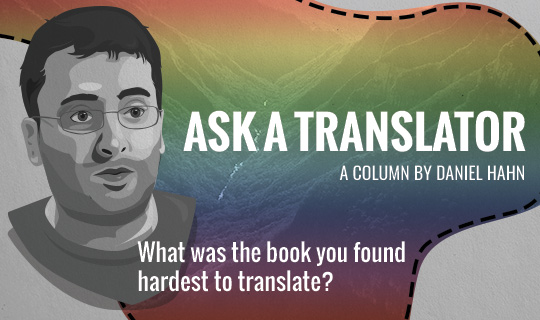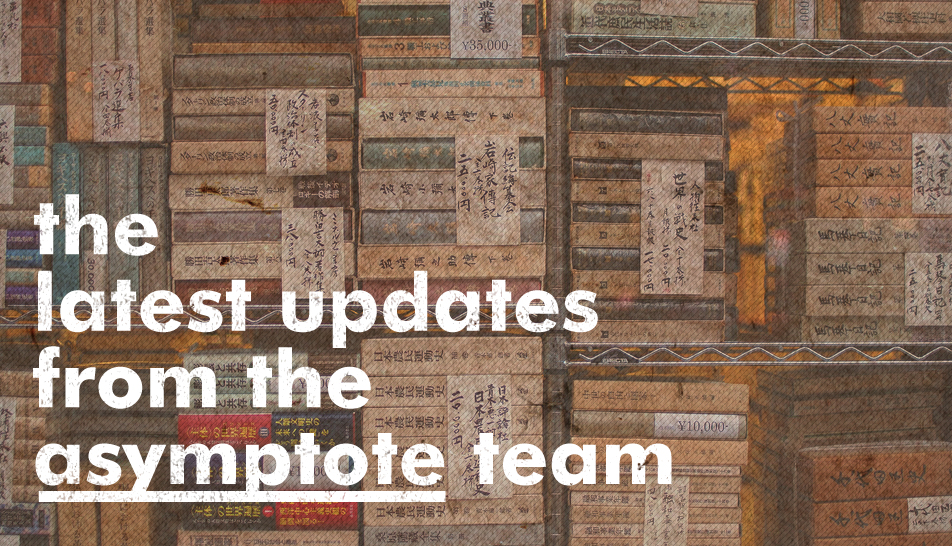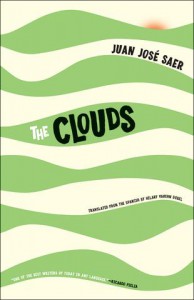Our resident translation expert, writer, and jack-of-all-trades, Daniel Hahn, is back to respond to reader questions on the fine art of translation. Today’s question comes from Lin Chia Wei, a reader in Taiwan. And—don’t miss our first-ever “Ask a Translator” live event with Daniel Hahn in London on Wednesday, July 20 (RSVP at or invite your friends to the Facebook event page here).
Is there anything that is completely untranslatable, in your opinion?
Everything is untranslatable, that’s what I think.
Or alternatively, I think that nothing is.
And honestly, I’m perfectly comfortable with either of those ideas; both make sense to me. I’m not altogether comfortable, however, with the idea behind the question itself.
There are certain components to a text that are likely to present particular challenges to a translator (I talked about these in last month’s column), things that feel like absolute impossibilities. And conversely there are moments when you’re translating and a clever solution presents itself, or when a new voice you’re creating comes into focus, and the sheer rightness seems miraculous, the fact of it being so very possible feels exhilarating. But these experiences, and the question, would seem to suggest a simple binary—translatable / not translatable—which is misleading. Translation is all failure, because it’s never “perfect”; and it is all also, simultaneously, a triumph, because however imperfectly something living has been created out of the most unlikely circumstances.













